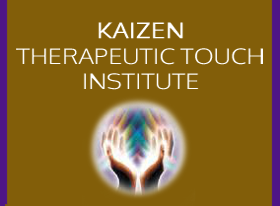 Helping clients cultivate mindfulness, the ability to be present and engaged in the moment, is central to our approach. Why? Because it works!
Helping clients cultivate mindfulness, the ability to be present and engaged in the moment, is central to our approach. Why? Because it works!
According to neuroscientist, Mike Merzenich “Experience, coupled with attention leads to physical changes in the structure and future functioning of the nervous system. This leaves us with a clear physiological fact…Moment by moment we choose and sculpt how our ever-changing minds will work, we choose who we will be the next moment in a very real sense and these choices are left embossed in physical form on our material.”
“It is fascinating to see the brain’s plasticity and that, by practicing meditation, we can play an active role in changing the brain and can increase our well-being and quality of life.” says Britta Hölzel, PhD, a research fellow at MGH and Giessen University in Germany. Learn more in this Science News January 21, 2011 article
More recently, in an article published October 25, 2012 in Frontiers in Human Neuroscience,David R. Vago* and David A. Silbersweig “provide an integrative theoretical framework and systems-based neurobiological model that explains the mechanisms by which mindfulness reduces biases related to self-processing and creates a sustainable healthy mind.”
Learning how to be mindful takes training and requires
- A spirit of openness and non-judgment
- Commitment to being present in the moment
- Sustained attention, noticing what is working
- Reflective practice
Benefits of Mindfulness:
Cultivating mindfulness helps you gain insight into:
- Unconscious, automatic reactions – triggers and hot buttons
- Habitual patterns of thought, feeling and behaviour and
- Allows you to transcend contradictions and fears, integrate our experiences and
- Helps you embrace complexity and
- Take empowered action.
According to neuroscientist Dr. Daniel Siegel, the practice of inward reflection, particularly in meditation, energizes and trains the areas of the brain associated with:
- Balance between the sympathetic and parasympathetic nervous systems
- Attuned communication
- Emotional balance
- The capacity for flexible, non-reactive response
- Empathy
- Self-knowing awareness
- Healthy regulation of fear
- Intuition
- Morality
Mindfulness Is Good for Your Health
Scientific research studies show that mindfulness meditation can:
 Overcome stress and improve relaxation (University of Massachusetts Medical School, 2003)
Overcome stress and improve relaxation (University of Massachusetts Medical School, 2003)- Alleviate pain and improve cognitive processing (Wake Forest University School of Medicine, 2010)
- Help overcome anxiety, depression, anger and confusion (Psychosomatic Medicine, 2009)
- Improve digestion and lower blood pressure (Harvard Medical School)
- Decrease your risk of heart attack (The Stroke Journal, 2009)
- Boost creativity and positive mental outlook.(ScienceDaily, 2010)
- Increase your libido and improve your sex life (The Journal of Sexual Medicine, 2009)
- Cultivate healthy habits that lead to weight loss (Journal Emotion, 2007)
- Enhance mental focus and attention (University of Wisconsin-Madison, 2007)
- Increase the size of your brain! (Harvard University Gazette, 2006)
Learn how our mindfulness training and coaching approach harmonizes head and heart facilitating healing, transformation and personal growth through the 12 Steps to Becoming An Authentic Mindful Leader and grow your personal leadership capacity.





